Imagine yourself as a marketer or a business leader attending a bustling conference filled with potential clients and competitors. Conversations are buzzing all around you, ideas are being shared, and the industry’s next big trends are being discussed. However, instead of actively participating and listening to what’s being said, you find yourself sitting in a corner, disconnected from the dialogue. It’s as if you’re missing out on a golden opportunity to expand your business horizons. This scenario vividly illustrates the consequences of neglecting social listening in the B2B world.
In today’s rapidly evolving digital landscape, where countless individuals discuss brands on social media every day, the importance of tuning into these digital conversations cannot be overstated for businesses. Social listening entails tracking and analyzing discussions across various social media platforms to gain insights into how your brand, products, or industry are perceived by the online community. It involves monitoring specific keywords, brand mentions, phrases, and topics relevant to your business and leveraging this data to make informed decisions.
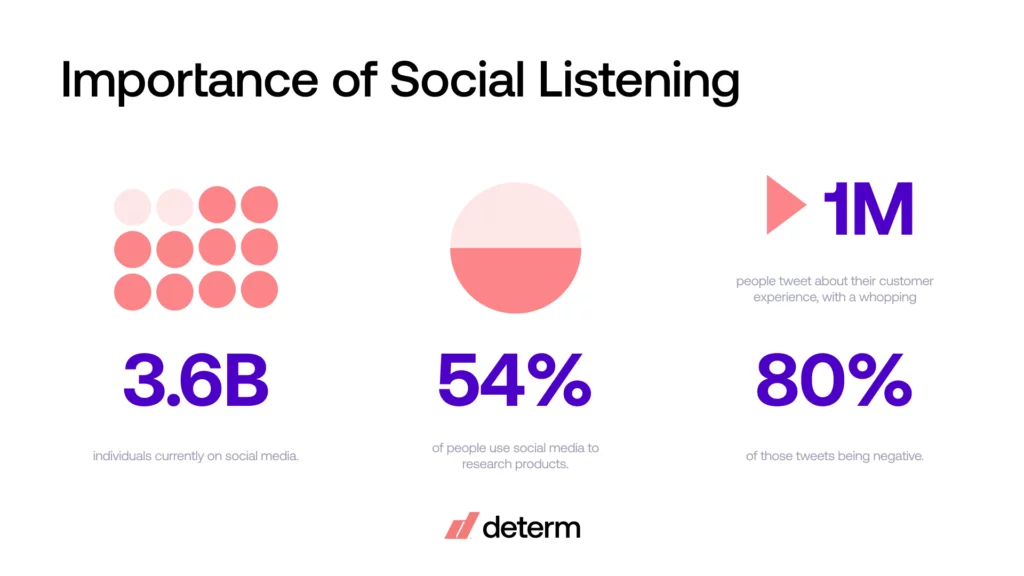
Social listening empowers businesses to identify opportune moments to engage in conversations, share valuable content, and provide industry insights, such as regulatory updates or technological advancements, thereby nurturing customer relationships.
The evolution of social listening isn’t solely about quantity; it also hinges on the quality of insights garnered and the sophistication of the analytical tools employed. Consider the case of the automobile giant Nissan. When Nissan introduced the Datsun model in India, they utilized social listening to gauge public sentiment surrounding the car. Through this process, they discovered that while consumers appreciated the car’s spacious boot, they expressed dissatisfaction with its interior design. Although immediate changes to the car’s design weren’t feasible, this insight proved invaluable for Nissan’s marketing strategy. They strategically focused their promotional efforts on highlighting the spaciousness of the boot, aligning their messaging with consumer preferences uncovered through social listening.
By actively engaging in social listening and leveraging the insights gleaned, businesses like Nissan can adapt their strategies to better resonate with their target audience, ultimately driving growth and success in the competitive B2B landscape.
Benefits of B2B Social Listening:
- Elevating Customer Experiences to Drive Business Growth
Irrespective of whether you belong to a sprawling corporation or a compact enterprise, social listening emerges as a pivotal solution to enhance the customer experience you offer. It’s not merely about passively hearing what customers have to say; it’s about comprehending and taking action on their feedback to cultivate customer loyalty and propel business expansion.
But how do you navigate through the vast expanse of customer feedback efficiently?
One effective solution is leveraging cutting-edge, AI-powered social listening tools like Sprinklr Insights, which enable you to tap into millions of conversations occurring daily across various channels. These tools possess the capability to transform voluminous, unstructured data into actionable insights, providing you with a comprehensive overview of customer sentiment—whether it’s positive, negative, or neutral.
- Proactive Crisis Management
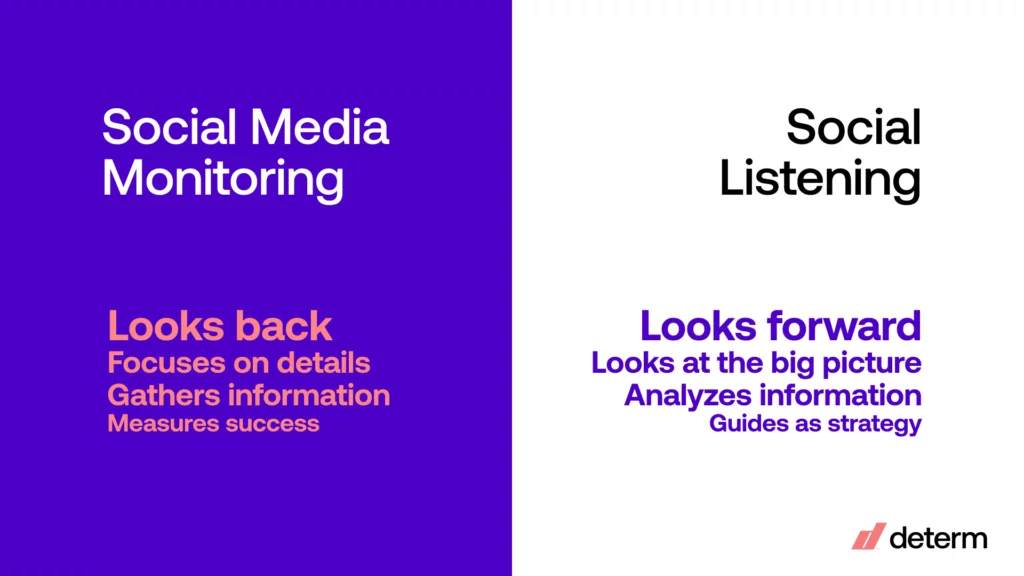
Social listening stands out as a potent instrument for proactive social media crisis management, as exemplified by a prominent soft-drink brand’s advertisement controversy in 2017. This advertisement, featuring a renowned celebrity, was initially intended to promote unity but inadvertently sparked offense among many by appearing to trivialize serious social issues.
Through astute social listening practices, the brand swiftly became aware of the unfolding situation, promptly withdrew the advertisement, and issued a public apology, thus averting a full-blown crisis. This incident underscores the criticality of adeptly managing crises to safeguard brand reputation and uphold public trust.
Efficient crisis management holds paramount importance for brands, as mishandling such situations can precipitate adverse impacts on revenue and customer loyalty. Social listening enables brands to detect crises early on, comprehend their underlying causes, and respond promptly. By doing so, brands can effectively manage their reputation and mitigate the negative repercussions on their business.
Employing advanced social listening tools can be instrumental during crisis situations. These tools utilize AI to swiftly identify risks to a brand, significantly reducing response times by up to 70%. Moreover, they issue alerts to teams concerning any unusual online activities, facilitating rapid action to mitigate further damage.
- Understanding Customer Needs
Doubletake, a company specializing in tennis and pickleball bags, achieved a remarkable 191% increase in website conversions by enhancing clarity on its homepage, catering to the explicit needs of its customers.
By explicitly stating that they offered tennis and pickleball bags—information that was previously unclear to website visitors—Doubletake significantly improved the understandability of their product offerings, resulting in a substantial surge in their conversion rate.
By actively listening to and comprehending customer needs, businesses can implement targeted modifications that wield a profound impact on their success.
Through social listening tools like Sprinklr Insights, businesses gain access to invaluable insights into customer sentiments and preferences, enabling them to fine-tune their strategies and offerings to align with customer expectations effectively.
Learn about personalization trends in B2B here.
B2B Social Listening Strategies:
1. Stay Ahead of Your Competitors
In the ever-evolving B2B arena, keeping a vigilant eye on your competitors is paramount. By monitoring their activities, you can glean valuable insights into market trends, consumer sentiments, and effective strategies. Imagine discovering that a competitor is gaining traction for their innovative use of augmented reality in product demonstrations. By leveraging this insight, you can refine your own presentations, positioning your brand as a trailblazer in the industry.
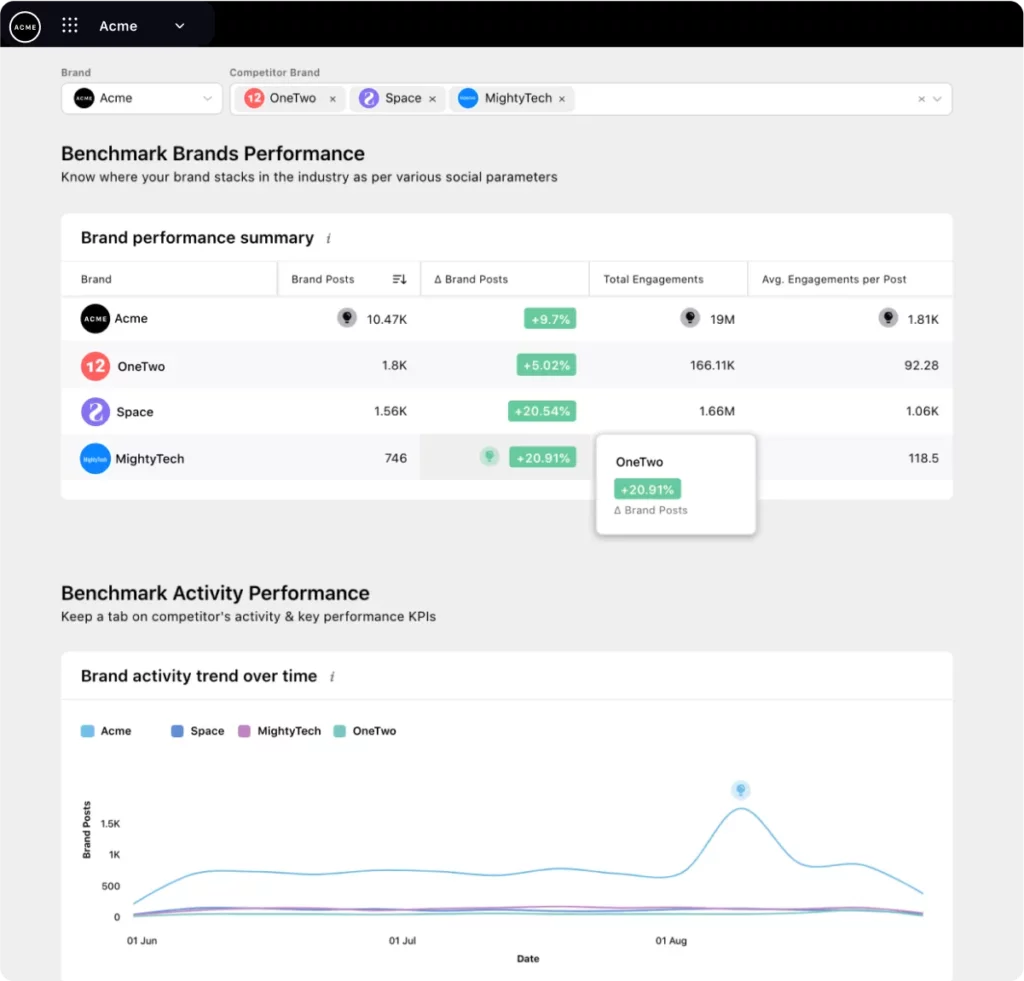
To streamline competitor analysis, leverage advanced competitive insights tools like Sprinklr Social’s benchmarking feature. Powered by AI, these tools offer deep insights into your competitors’ actions across multiple social channels, enabling you to adapt swiftly and outperform your rivals.
2. Identify Trends for Growth Opportunities
B2B success hinges on identifying and capitalizing on emerging industry trends. Whether it’s the rise of remote work tools or the growing emphasis on sustainability, staying attuned to trends is crucial. Picture harnessing the remote work trend by aligning your marketing strategy to highlight your products’ remote capabilities, giving your brand a competitive edge.

To stay ahead of the curve, utilize competitive benchmarking tools that not only track competitors but also identify emerging trends across social platforms. These tools offer actionable insights, allowing you to target potential customers effectively and maintain your position as an industry leader.
3. Leverage Influencers for Enhanced Engagement
Influencer marketing presents a potent avenue for driving engagement in the B2B space. By leveraging social listening, you can identify and collaborate with niche influencers, amplifying your brand’s visibility among targeted audiences. For instance, partnering with a prominent industry thought leader can expand your reach and credibility.
To streamline influencer collaborations, consider using influencer management platforms like Traackr or AspireIQ. These platforms provide comprehensive influencer data and facilitate seamless communication and collaboration, ensuring your influencer campaigns yield maximum impact.
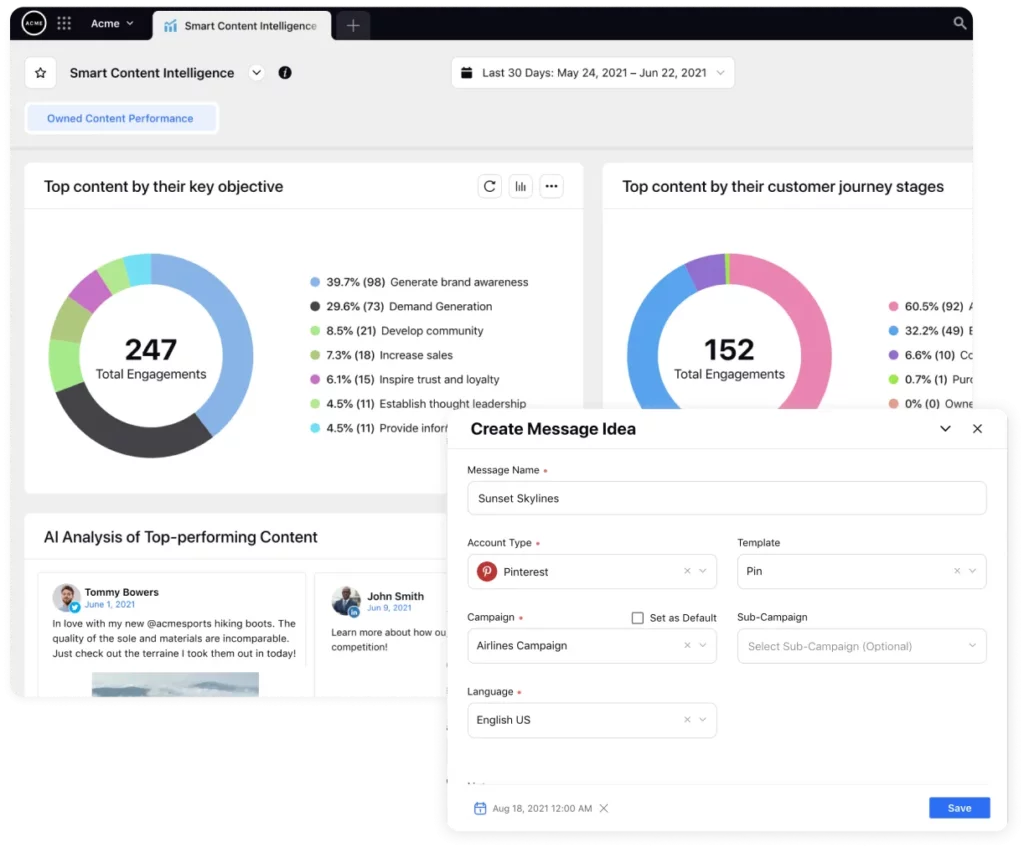
4. Resolve Issues Promptly to Foster Loyalty
Swift resolution of customer issues is essential for building trust and loyalty. By actively listening to customer feedback, B2B businesses can address concerns promptly, turning negative experiences into opportunities for positive engagement. Take Nike’s customer support on Twitter, for instance, which swiftly responds to customer queries and issues, enhancing brand reputation.
To streamline customer support processes, integrate a robust help desk software like Zendesk or Freshdesk. These platforms centralize customer communications, automate ticketing workflows, and enable proactive engagement, ensuring exceptional customer experiences and long-term loyalty.
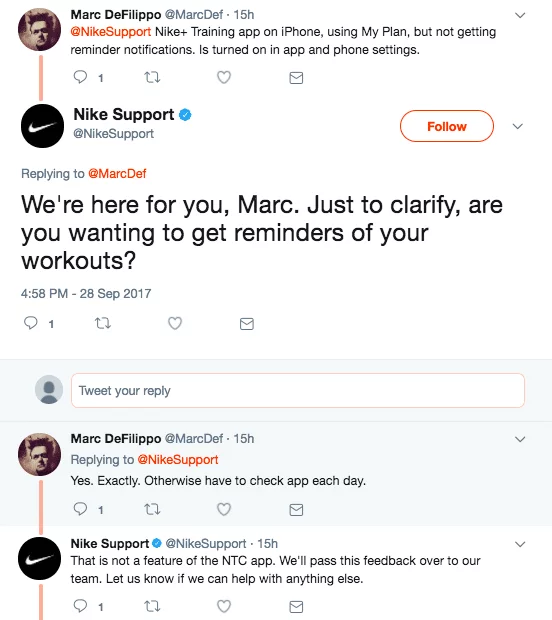
5. Engage Across Channels with a Multichannel Approach
In today’s interconnected digital landscape, B2B brands must engage with customers across multiple channels. By leveraging social listening tools like Sprinklr, which monitor conversations across various digital platforms, brands can ensure comprehensive engagement and timely responses. Just like Hilton Hotels, which promptly addresses guest feedback on social media, your brand can foster meaningful interactions and maintain a competitive edge.
To enhance multichannel engagement, consider integrating social media management platforms like Hootsuite or Buffer. These tools streamline content publishing, facilitate real-time monitoring, and enable seamless collaboration across teams, ensuring consistent and effective communication across all channels.

Conclusion:
B2B social listening is a powerful tool that enables businesses to gain valuable insights into their industry, competitors, and target audience. By monitoring conversations and trends on social media platforms, B2B companies can uncover actionable intelligence that informs their marketing strategies, product development, customer service efforts, and overall business decision-making process.
FAQs on B2B Social Listening:
How often should B2B companies engage in social listening activities?
The frequency of social listening depends on factors such as industry dynamics, company goals, and available resources. However, it’s advisable for B2B companies to monitor social media channels regularly to stay informed about relevant conversations and trends.
Can B2B social listening help with identifying influencers and industry thought leaders?
Yes, social listening can identify influential individuals within the industry whose opinions and recommendations hold sway over others. B2B companies can leverage these insights to collaborate with influencers, engage in thought leadership initiatives, and amplify their brand reach.
Is sentiment analysis accurate in B2B social listening?
Sentiment analysis in B2B social listening can be accurate if implemented correctly. However, it may require customization to account for industry-specific terminology, context, and nuances. Human validation and refinement of automated sentiment analysis results are often necessary to ensure accuracy.



